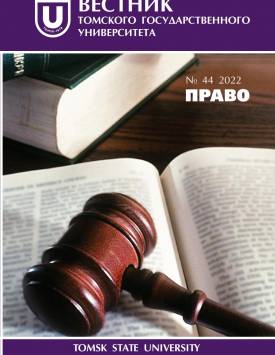System of Law
The article examines the system of Russian law and the grounds for singling out its elements. It gives the notion of the system, the main requirements that are imposed on it: there must be identity between the genus (system) and the sum of its species (branches, institutions), i.e. all elements of the system of law must exclude each other (disjunctivity principle); to divide the system into elements there must be one basis. In the article, the division of the system of law into elements is based on the subjective composition. The article argues that the division of Russian law into branches cannot be based on such grounds as subject matter and method. In the existing interpretations of the distinction between branches and institutions of Russian law, the approach is not systemic, but rather conglomerative. The practical necessity of differentiating law into branches and institutions is emphasised, and the history of their differentiation is examined. There should always be continuity in theory and practice. In this sense, it is impossible to ignore the fact that the law has been developed by a number of theories in the history of science. In this sense, one cannot but see that the distinction between branches by subject and method has been adopted by Russia in the organization of legal education: in the development of curricula, in the construction of individual courses and even in the structure of law schools, faculties and special courses. It is possible, and apparently necessary, to criticise the system of law proposed in its time by A.Ya. Vyshinsky, but it is hardly justified to "break" and "reconstruct" it, as has been done in the last decade. The bachelor's programme, the master's programme and the replacement of legal education with the provision of a service, all the more so as a paid service, have led to very sad results in the formation of the social status and legal consciousness of future lawyers. The author declares no conflicts of interests.
Keywords
system of law, private law, grounds for dividing law into branchesAuthors
| Name | Organization | |
| Lebedev Vladimir M. | Tomsk State University | prirodares@mail.ru |
References

System of Law | Tomsk State University Journal of Law. 2022. № 44. DOI: 10.17223/22253513/44/12
